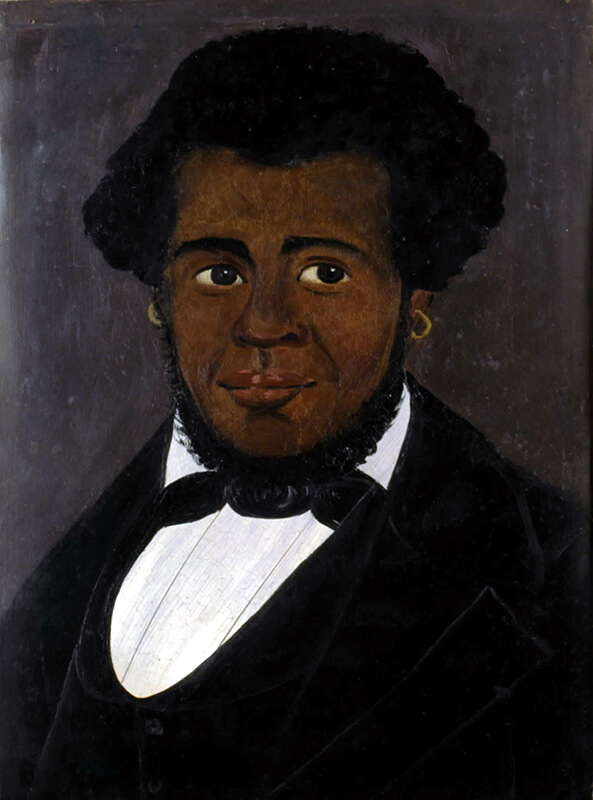ACTIVIST
Absalom Boston

Absalom Boston, the son of Seneca Boston, a free Black man, and Thankful Micah, a Nantucket Wampanoag, who, aboard the Industry, was the first whaleship captain to command a crew made up entirely of people of color. His subsequent business ventures in innkeeping and real estate were highly successful, enabling him to amass considerable wealth (1). Boston was extremely active in his community and passionately fought for racial equality. He founded the African Meeting House and School and served as trustee of the African Baptist Church. (2)
Boston, as a prominent activist of color on the island, was surely present, along with nationally renowned activists Lucretia Mott, Charles L. Redmond, and William Lloyd Garrison, at Nantucket’s inaugural Anti-Slavery Convention in 1841 when Frederick Douglass gave his first public address. He would have also been in attendance the following year when islanders mobbed attendees for three days in response to Steven S. Foster’s famous “Brotherhood of Thieves” address in which he proclaimed the church was the “Bulwark of Slavery,” and its clergy a “Brotherhood of Thieves.”(3)
To fight school segregation on Nantucket, Boston, together with his community, petitioned the state government and boycotted the segregated York Street School. Their actions resulted in the 1845 Massachusetts law mandating equal access to education for every resident regardless of skin color. When Nantucket chose to ignore the new law, Boston announced his plan to sue in the name of his daughter Phoebe Ann and Eunice Ross, a talented student and activist who had been denied admission to the island’s high school. Nantucket soon agreed to desegregate to avoid a costly legal battle. (5)
Boston’s son, Oliver Boston, fought in the Civil War from July 14, 1863–August 8, 1864. His uncle, Prince Boston, was the first man in the United States to successfully sue for his freedom, with the court ruling that he be paid all withheld wages from his work on a whaleship. He went on to captain whaleships owned by people of color. (2)
1. White, Barbara Ann. “Black Activism Before the Civil War.” Historic Nantucket, vol. 12, no. 2, Early Fall 2022. p14
https://issuu.com/nantuckethistoricalassociation/docs/98574_nha_hn_fall_singles/18
2. “Notable Black Nantucketers; Four Generations of the Boston Family” (https://abolitiontosuffrage.nha.org/notable-black-nantucketers/)
Beagle, Susan F. “The Brotherhood of Thieves Riot of 1842.” African-American History on Nantucket. Historic Nantucket, vol. 40, no. 3, Fall 1992. p46
3. Johnson, Robert. "Black-White Relations on Nantucket". Historic Nantucket. Spring 2022. p18
(https://issuu.com/nantuckethistoricalassociation/docs/98574_nha_hn_fall_singles/18)
4. “March 25, 1845: Legislature Guarantees Access to Public Schools.” Mass Moments. (https://www.massmoments.org/moment-details/legislature-guarantees-access-to-public-schools.html)


